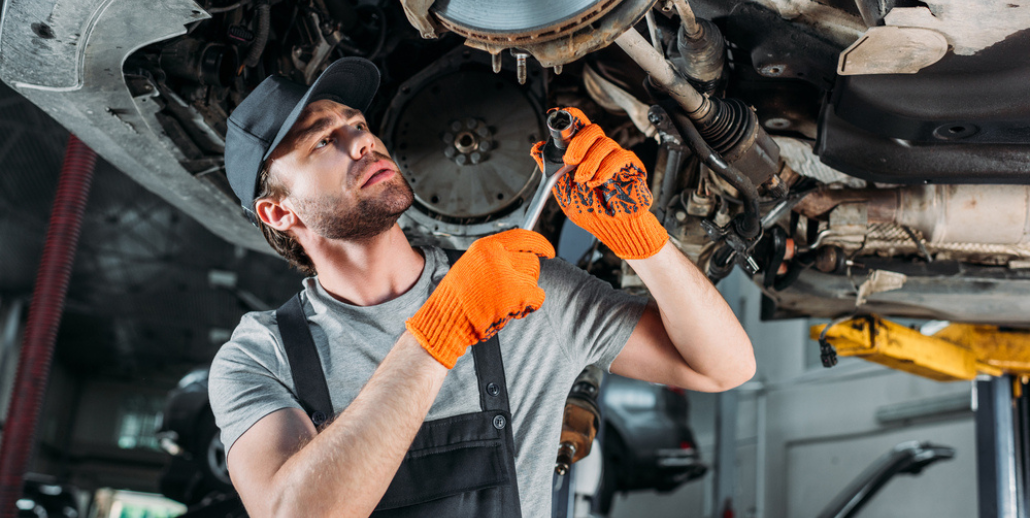If you have ever watched a professional auto mechanic at work, you have probably seen them plug a small device into the vehicle’s console for the purpose of “reading codes.” Most people have seen these devices at some point, but not everyone realizes how crucial they are. Every repair job should begin with a diagnostic/estimate. In order to do that step correctly, you need a proper scan. Otherwise, there is no way to know if all the problems have been discovered.
Why Don’t Some Repair Shops Perform Scans?
There are several reasons why some shops neglect this important step. Sometimes, they will omit the scan because they simply don’t have the right scanning equipment. If they have the right equipment, but it isn’t on hand at the time, they may also choose to omit the scan. Obviously, both of these occurrences are red flags that indicate that your repair shop isn’t very professional.
In many cases, this problem is just the result of outdated thinking. Prior to 2016, not all vehicles were able to be scanned. The first OBD (On-Board Diagnostic) tool was invented in the late 1970s, but support for these tools did not become a standard feature until fairly recently. Before 2016, scanning was not always necessary or possible. Thankfully, this part of the problem will solve itself over time as new technicians are trained properly.
Why You Need An OBD Scan
It is highly essential to perform a scan both before and after a repair job. The initial scan is done to confirm that all problems have been found. Modern vehicles have many electronic components like sensors, and it isn’t always easy to tell when one of these parts has stopped working. You can generally look at an engine or an alternator and diagnose the problem, but electronic components aren’t so easy.
When you take your vehicle to the shop, you are probably there to deal with a specific problem. However, there might be all sorts of secondary problems that will cause trouble in the future. It is always better to correct a problem while it is small. Because your vehicle is probably working every day, small problems have a tendency to grow and get worse with time. An OBD scan allows you to detect vehicular issues as soon as possible.
After the repair has been completed, it is equally important to do a post-scan. If you don’t do this, there is no way to verify that the existing problems have been fixed. Again, mechanics in the past didn’t have such an easy way to confirm the effectiveness of their repairs, but it would be foolish to omit such a step today.
This also brings us to a discussion of liability. It is possible to hold a shoddy repair shop legally accountable if they do not perform the services for which you have paid. In some extreme cases, there could even be criminal fraud charges. Thus, it makes a lot of sense for a repair shop to do these scans and document the results. It gives them a way to prove that the car was, in fact, repaired as ordered.
No-Scan Repairs Can Void Your Warranty
Most vehicles have a warranty, but all of them have certain conditions. In particular, most warranties have provisions regarding repairs. Vehicle manufacturers know that there are some terrible excuses for auto mechanics out there, and they don’t want to be held liable for the mistakes of such people. Thus, they usually require that your vehicle is repaired by a technician who has been certified by their company.

Of course, these are just warranty stipulations. There is no law (in most states) that prevents an unlicensed person from setting up shop and repairing vehicles for money. Certified technicians must follow a specific OEM process to repair the vehicle correctly, and this process will pretty much always include pre-scans and post-scans. This is why no-scan repairs have the potential to void your warranty.
How Does An OBD Scanner Work?
These are very simple tools that are intended to diagnose vehicular problems with efficiency. There is a small handheld unit with a cable that plugs into the vehicle. On most vehicles, the OBD port is located under the steering wheel. Using a small screen on the device, the technician selects the make and model of the vehicle.
Next, the device performs the scan, which doesn’t usually take more than a minute or two. When it’s finished, the device will display a series of numeric codes. The final step is to look up those code numbers, as each one corresponds to a specific malfunction. Although it is possible for these devices to make mistakes, they can generally be trusted.
Conclusion
The subject of OBD scanning is a very simple one, which fits with the simplicity and utility of the device. Of course, we should mention that there are different kinds of OBD scanners, but all of them perform the same basic function. Auto body scanning is not an optional step, and all credible shops understand this fact, so don’t let anyone tell you otherwise. If you need a good body shop or any other kind of automotive service, you can always call Elmer’s Auto Body at (856) 218-0202.






